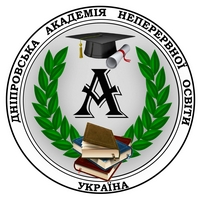NEW APPROACHES TO THE IMPLEMENTATION OF PEDAGOGICAL TECHNOLOGIES IN CONDITIONS OF EMERGENCY SITUATIONS AND MARTIAL LAW
Abstract
The article highlights the main approaches to the implementation of pedagogical technologies in the conditions of emergency situations and martial law, the essence of which is a new vision of the concept of educational and pedagogical activity, new forms and methods of learning which changed the core and content of pedagogical technologies. Among the factors of such changes, digitalization of the educational process, focus on individualization and interactivity of learning, orientation of the content of education on the development of soft skills and critical thinking have been identified. Attention was paid to the European integration orientation of the development of national education, which ensured the intensive introduction of new pedagogical technologies. It was noted that an important component of the pro-European education system was the introduction of modern educational technologies, their focus on solving the problems of sustainable development, active use of new information and educational technologies. The strategies of such changes are reflected in the Concept of the New Ukrainian School, new legislation, new educational and professional standards which most fully characterize the ideology of modernization processes in national education. It is noted that military aggression by the Russian Federation led to the search for new effective pedagogical technologies that would ensure the quality of domestic education at the level of European and international standards in such difficult conditions. New approaches to the implementation of pedagogical technologies, which in the conditions of martial law are an important factor in ensuring the quality of school education, have been defined and substantiated. Attention is drawn to the fact that the functional effectiveness of the teacher in the implementation of technological, competence. axiological and synergistic approaches are characterized by the ability to adapt new pedagogical technologies in accordance with the characteristics of the class and the capabilities of students; diversify the forms and methods of educational activity taking into account the peculiarities of the educational situation and the environment in which the educational process takes place; provide psychological support to students taking into account stressful situations and unstable emotional states; to provide optimal support for programs of individual development of students; implement the principles of partnership and cooperation with all subjects of educational activity. The important tasks of the teacher are outlined, including «ensuring the quality of education at the level of new educational standards by applying all available forms of educational organization process, optimal support of programs of individual development of education seekers, solving issues of student motivation for educational activities in the conditions of martial law». It is noted that conscious responsibility for the results of pedagogical activity, quick orientation in non-standard situations requires a high level of professional skill of the teacher of the new Ukrainian school.
References
2. Заклади освіти в умовах воєнного стану. URL: https://sqe.gov.ua/diyalnist/rekomendacii-zakladam-osviti/zakladi-osviti-v-umovakh-voiennogo-stan./ (дата звернення: 10.04.2024).
3. Концепція Нової української школи. URL: http://mon.gov.ua/konczepcziya.pdf (дата звернення: 20.06.2024).
4. Концепція національно-патріотичного виховання в системі освіти України. URL: https://zakononline.com.ua/documents/show/506238___736214 (дата звернення: 23.06.2024).
5. Мариновська О. Базові поняття педагогічної інноватики. Вісник Черкаського національного університету імені Богдана Хмельницького. Серія: «Педагогічні науки». 2023. № 3. С. 11–16.
6. Паламарчук В. Ф., Барановська О. В. Педагогічні технології навчання в умовах Нової української школи: вектор розвитку. Український педагогічний журнал. 2018. № 3. С. 60–66.

 ISSN
ISSN  ISSN
ISSN 

